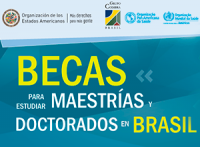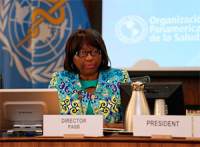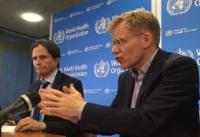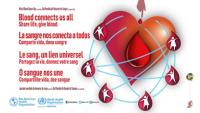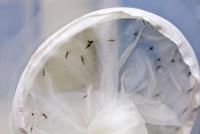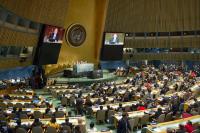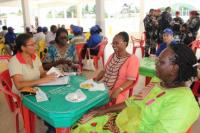You are here
News
-
06/23/2016 - A special issue of the Pan American Journal of Public Health published by the Pan American Health Organization (PAHO) with the support of the U.S. Food and Drug Administration (FDA), provides the latest scientific evidence on the regulation of medicines and other health technologies. This new information will help regulatory authorities to make informed decisions, broaden regulatory scope, and learn from the experiences of others.
-
06/22/2016 - The sixth consecutive edition of the Partnerships Program for Education and Training (PAEC) between the Organization of American States (OAS) and the Coimbra Group of Brazilian Universities (GCUB), with the support of the Brazilian Ministry of Foreign Affairs' Division of Educational Topics and the Pan American Health Organization (PAHO / WHO) offers more than 400 scholarship opportunities to outstanding citizens of OAS Member States to pursue master's or doctorate programs in Brazilian universities.
-
06/22/2016 - The long-term outlook for the Americas resulting from the Zika virus outbreak is uncertain and the number of people affected is difficult to gauge, but the Pan American Health Organization is responding with a strong, four-tiered strategy to support its countries, according to Dr. Sylvain Aldighieri, PAHO's incident manager for Zika.
-
06/20/2016 - The United Nations health agency today issued a revised strategic response plan for the next one and a half years to combat the transmission of the Zika virus, which has now spread to 60 countries.
-
06/15/2016 - The third meeting of the Emergency Committee (EC) convened by the Director-General under the International Health Regulations (2005) (IHR 2005) regarding microcephaly, other neurological disorders and Zika virus was held by teleconference on 14 June 2016. In addition to providing views to the Director-General on whether the event continued to constitute a Public Health Emergency of International Concern (PHEIC), the Committee was asked to consider the potential risks of Zika transmission for mass gatherings, including the Olympic and Paralympic Games scheduled for August and September 2016, respectively, in Rio de Janeiro, Brazil.
-
06/15/2016 - “The access to medicines is not a problem of developing countries only, but of the whole world. It is a battle of trade versus health". The declaration of the Vice President for Production and Innovation at Fiocruz and member of the United Nations High-Level Panel on Access to Medicines, Jorge Bermudez, gives the gist of the two days of debates in the meeting "Strategies to improve the access to biological products: lessons learned and challenges”, which ended last Thursday (9) at ISAGS’ headquarters.
-
06/13/2016 - This year's World Blood Donor Day, June 14, features the slogan "Share life, give blood" and focuses on how "blood connects us all." The 2016 campaign thanks all blood donors and highlights the solidarity and connection between donors and patients.
-
06/13/2016 - Support for countries that are fighting the Zika virus and the verification and monitoring of activities of the International Atomic Energy Agency (IAEA) in Iran were among the key issues highlighted by Director General Yukiya Amano to the agency’s Board of Governors in Vienna today.
-
06/09/2016 - At a high-level meeting on ending AIDS that opened at the United Nations General Assembly today, Member States adopted a new political declaration that includes a set of time-bound targets to fast-track the pace of progress towards combating the worldwide scourge of HIV and AIDS over the next five years and end the epidemic as a public health threat by 2030.
-
06/07/2016 - The United Nations Office for South-South Cooperation launched a publication to highlight good practices from Southern nations that are relevant to the implementation of the Sustainable Development Goals. Called “Good Practices in South-South and Triangular Cooperation for sustainable Development”, the publication presents initiatives in which developing countries turn to one another to address common challenges, and the WFP Centre of Excellence against Hunger is one of the experiences featured.


